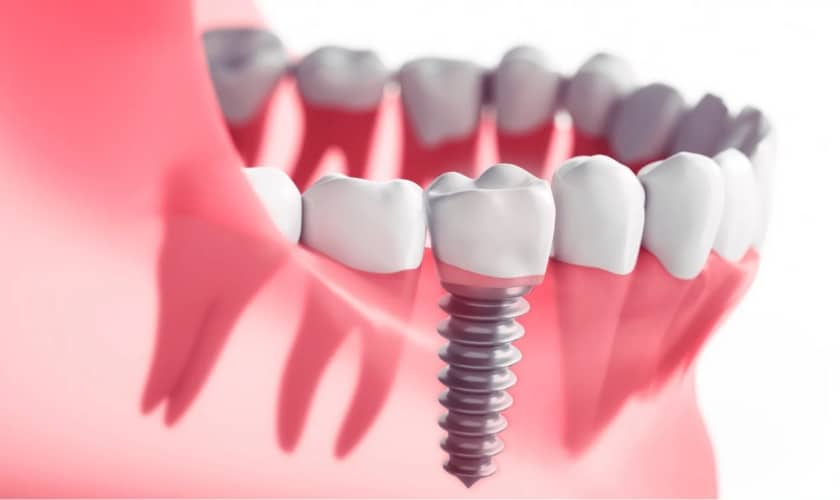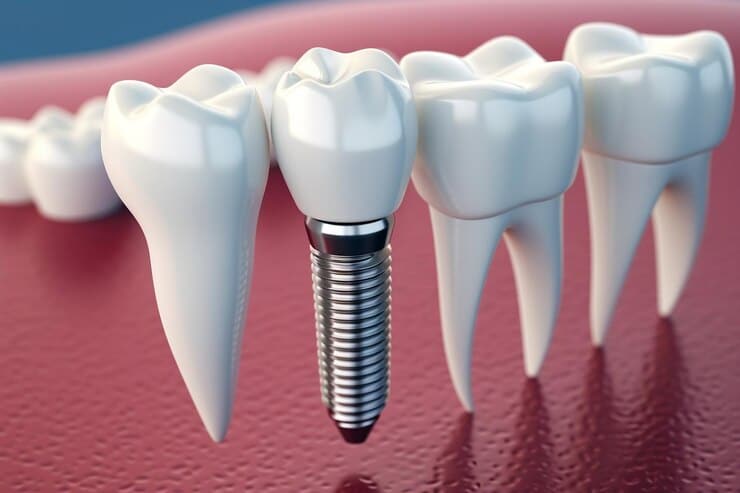
When a tooth is lost due to trauma or illness, there may be unpleasant side effects such as quick bone loss, speech problems, or altered chewing habits. The patient’s health and quality of life can be significantly enhanced by using a dental implant to replace a missing tooth. Dental implant systems are composed of an implant body, an abutment, and, in some cases, an abutment fixation screw. In place of the tooth’s root, the dental implant body is surgically placed in the jawbone. The dental implant abutment often extends through the gums into the mouth to support the attached artificial teeth after being fixed to the implant body with an abutment fixation screw.
What To Know About Dental Implants?
The procedure for dental implants differs depending on many variables. Not everybody will, unfortunately, be a good candidate for the procedure. The condition of a patient’s jawbone is one of the most crucial aspects. The implant physically bonds with the bone to guarantee that the replacement won’t move. Additionally, this helps preserve the patient’s bone structure. Without it, the jawbone will eventually tighten and collapse, resulting in a droopy chin and mouth. This is what occurs when people use typical removable dentures. Bone grafting may be required as an additional surgical step if the jawbone is not strong enough to support the procedure. This must be done first if the replacement tooth needs to be extracted because it is still in the mouth. Longer tooth gaps increase the likelihood of a bone graft being necessary since bone degeneration happens over time. Sometimes a bone transplant is essential, and the implant must be placed later. Sometimes the implant can be inserted during the same session.
How Do Dental Implants Work?
Your dentist will perform the dental implant surgery in phases so that the mouth can heal between sessions. There are various steps involved in implant placement, some of which include:
- Removing the broken tooth
- preparing jawbone(grafting)
- inserting the implant
- Time for bones to grow and heal.
- Placing abutments
- Placing artificial tooth
How Long Does It Take To Get A Dental Implant?
It takes three to six months to complete the dental implant procedure, including putting the post, recovering, and acquiring a crown. It will take longer if you require an extraction, a bone graft or have difficulties.
How Are Dental Implants Beneficial?
- The ability to chew again thoroughly is an implant’s main benefit. Most patients cannot distinguish between their implanted tooth and their natural teeth. They can clean their teeth and floss properly while using it, and they can eat normally.
- Dental implants are permanent. The titanium implant fuses with the jawbone and is comprised of titanium. It is biocompatible, which means that it won’t harm the body and won’t be rejected by it. Overall, it creates a sturdy replacement tooth.
- Chewing is again normal due to an implant, which replaces the tooth’s root. The implant also gives the bone the stimulus it needs to grow naturally.
- Dental implants keep the neighboring teeth stable. A missing tooth might leave a gap, leading to the uneven movement of nearby teeth in that direction. This causes your teeth to shift out of place and may impact your bite, chewing function, and looks.
Single-tooth replacement with dental implants is becoming more common, especially in the back of the mouth. A dental implant may replace a single tooth instead of removing healthy tooth structure, crowning two or more teeth, which raises the risk of decay, reducing the ability to care for the teeth and increasing plaque retention properly. Visit our dental office if you need more information.



